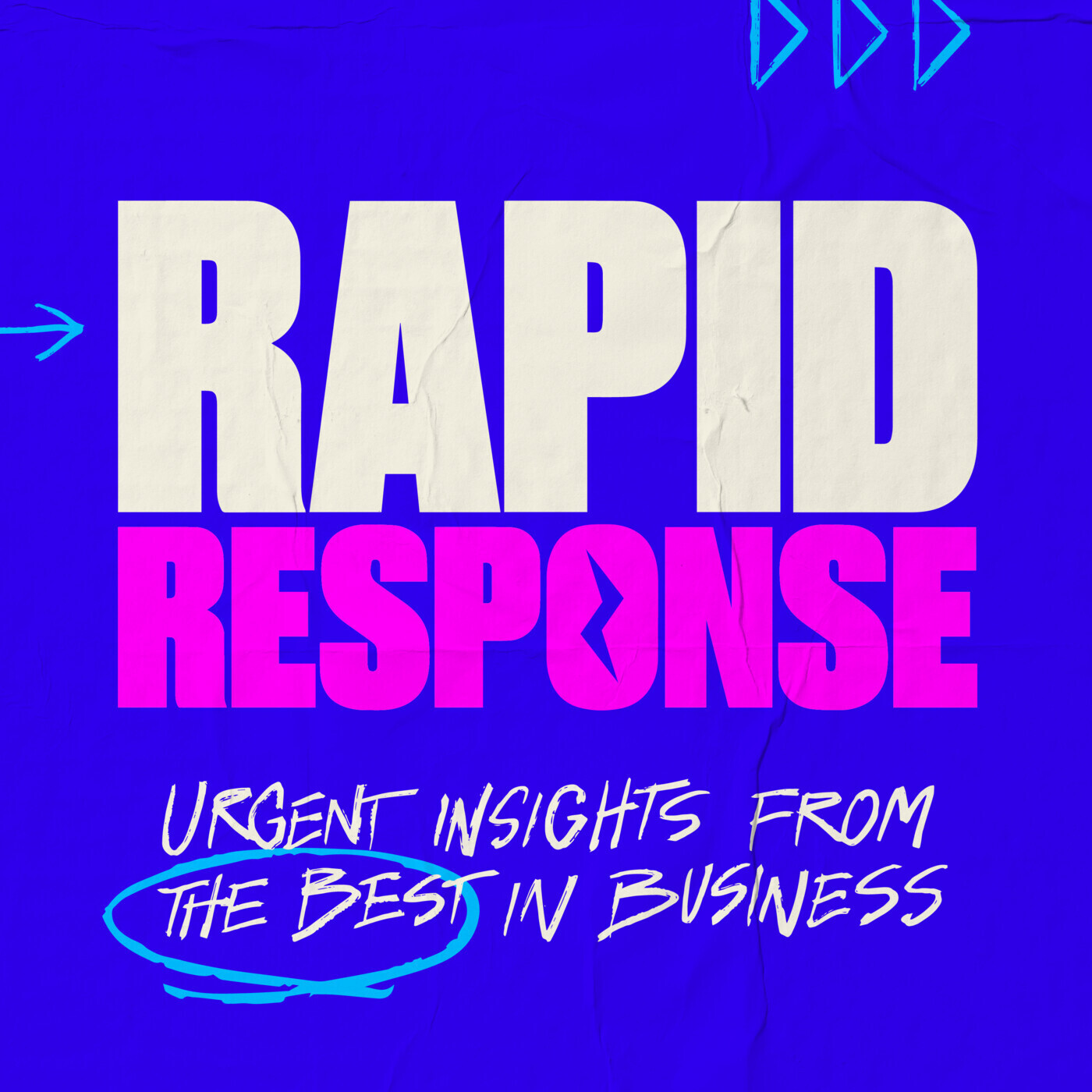
5 bold AI predictions for 2025, with Pioneers of AI host Dr. Rana El Kaliouby

Masters of Scale
Deep Dive
What is agentic AI and how does it differ from large language models like ChatGPT?
Agentic AI refers to AI systems that act on behalf of users to complete tasks autonomously, unlike large language models like ChatGPT, which serve as thought or creative partners but do not perform actions. Agentic AI is already being used in enterprise workflows to automate internal processes, and personal AI agents are expected to emerge for tasks like scheduling appointments or managing personal tasks.
What are the challenges in developing personal AI agents?
Developing personal AI agents involves complexities such as ensuring access to personal data like calendars and health information, creating a user-friendly interface, and building trust. Trust is a major hurdle, as users must feel comfortable delegating tasks like financial transactions or health-related decisions to AI agents.
What is embodied AI, and how is it different from traditional AI?
Embodied AI refers to AI systems integrated into physical forms, such as robots, robotic arms, or digital pets, rather than being confined to 2D screens. These systems combine physical intelligence with generative AI and emotional intelligence, and they are already being used in manufacturing and retail. Consumer applications, like social robots or home companions, are expected to grow.
What ethical considerations are associated with embodied AI?
Embodied AI raises ethical concerns around bias, privacy, and trust. Bias can occur if the AI's perception systems are not trained to recognize all people equally. Privacy is critical when robots interact closely with humans in environments like homes or hospitals. Trust is essential for users to feel comfortable with AI systems handling sensitive tasks.
What is a one-person unicorn in the context of AI?
A one-person unicorn is a privately owned company valued at over $1 billion that operates with a single human employee supported by a team of AI tools and agents. These AI systems handle tasks like marketing, sales, coding, and legal work, enabling the company to function efficiently with minimal human involvement.
What are the potential risks of AI companions for young people?
AI companions can become highly addictive due to their personalized and intimate interactions, potentially replacing social media as a major threat to young people's mental health. They may also manipulate users into making purchases or decisions based on emotional states, raising concerns about ethical design and usage.
How can AI health co-pilots transform healthcare?
AI health co-pilots can combine data from sensors, predictive AI, and generative AI to provide personalized health advice, monitor physical and mental health, and nudge users toward healthier behaviors. These tools can offer 24/7 support, helping users manage nutrition, exercise, and even diagnose conditions like rashes or illnesses.
Why is emotional intelligence (EQ) important in AI?
Emotional intelligence in AI is crucial because it enables systems to understand and respond to human emotions, improving interactions and decision-making. EQ allows AI to adapt its behavior based on a user's emotional state, making it more effective in applications like mental health support, negotiation, and persuasion.
What are the sustainability challenges in AI development?
AI development faces significant sustainability challenges due to high energy consumption. Training large language models can consume as much electricity as a small country like Costa Rica in a year. Innovations in AI chips, energy-efficient models, and edge computing are being explored to address these issues.
What is the potential impact of AI on women's health?
AI has the potential to revolutionize women's health by addressing underfunded areas and providing personalized insights. For example, AI-powered sensors could track hormonal health longitudinally, enabling women to optimize their sleep, exercise, and nutrition. This could lead to better management of conditions and overall well-being.
- AI agents act on behalf of users, unlike chatbots.
- Trust is a major hurdle for personal AI agents.
- A simple, user-friendly interface is crucial for widespread adoption.
Shownotes Transcript
Entering 2025, AI is poised to continue disrupting, redefining and supercharging the business world. AI expert and Pioneers of AI host, Rana El Kaliouby, joins Rapid Response to share five bold AI predictions for the year ahead – from technological advancements to societal impact to investing. Whether you’re looking for AI to further enhance your work, portfolio, or personal productivity, Rana’s insights are the ideal primer for harnessing all the opportunity and potential at your disposal this year.
Visit the Rapid Response website here: https://www.rapidresponseshow.com/)
Learn more about Pioneers of AI: http://pioneersof.ai/)
See Privacy Policy at https://art19.com/privacy) and California Privacy Notice at https://art19.com/privacy#do-not-sell-my-info).